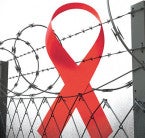 In the United States, criminalizing HIV remains a way in which people with HIV are discriminated against. HIV criminalization refers to the unjust application of criminal laws to people living with HIV based solely on their HIV status. Currently, 33 states and 2 U.S. territories have HIV specific criminal laws that apply only to people living with HIV. Other states still use general criminal laws to prosecute people on the basis of HIV status. The Department of Justice’s position is that the best practice is for states to modernize their HIV criminal laws to match the current science on HIV transmission.
In the United States, criminalizing HIV remains a way in which people with HIV are discriminated against. HIV criminalization refers to the unjust application of criminal laws to people living with HIV based solely on their HIV status. Currently, 33 states and 2 U.S. territories have HIV specific criminal laws that apply only to people living with HIV. Other states still use general criminal laws to prosecute people on the basis of HIV status. The Department of Justice’s position is that the best practice is for states to modernize their HIV criminal laws to match the current science on HIV transmission.
California HIV Modernization Bill Awaits Governor Signature
Iowa and Colorado have updated their HIV criminal laws in recent years, and California has taken steps in this regard.
A bill modernizing HIV criminalization was passed by the California State Legislature on September 11, 2017 and is now awaiting the governor’s signature. California currently has four HIV-specific criminal laws on the books. This includes making it a felony for people with HIV to donate blood, tissue, or, under specified circumstances, semen or breast milk and making it a felony punishable up to nearly a decade in prison for a person with HIV to engage in unprotected sex that exposes another to HIV. Under the existing law, actual transmission is not required, and someone can be convicted of a felony for activities that do not risk transmission of HIV, while all other diseases are misdemeanors.
SB 239 reduces the penalty for HIV from a felony to a misdemeanor. The reduction means the law does not treat HIV differently than other serious communicable diseases, thereby removing discrimination and stigma for people living with HIV. This step towards modernizing HIV laws in California would mean that the maximum penalty would go from years in prison to up to six months in jail.
Michael Johnson Enters No-Contest Plea, Sentenced to Ten Years in Prison
Missouri’s HIV criminalization statute is one example of an application of law based on alleged non-disclosure of HIV status prior to engaging in sexual conduct.
In July 2015, Michael Johnson, a college student athlete, was sentenced to 30 years under the Missouri statute. While disclosure of HIV status is an affirmative defense under the statute, it can be difficult for the defendant to prove in most instances.
In December 2016, the Missouri Court of Appeals threw out the original conviction due to a “fundamentally unfair” trial, and in September 2017, Michael pled no-contest to not disclosing his HIV-positive status to sexual partners and was sentenced to 10 years in prison.
Ohio Supreme Court to Decide First Amendment Challenge to HIV Criminal Law
Similar to the Missouri statute that Michael Johnson was prosecuted under, people living with HIV in Ohio must disclose their HIV status to sexual partners or face felony assault charges.
The Ohio Supreme Court is expected to rule this fall on a challenge to HIV criminalization in Ohio. Lawyers and advocates challenging the Ohio law say that it is unconstitutional because it is based on discrimination against people with HIV in violation of the Equal Protection Cause of the Fourteenth Amendment and does not take reflect the medical reality of HIV. They also argue this law violates the First Amendment “right to free speech” because it compels disclosure of an individual’s HIV status. Advocates stress that this law, and similar laws in other states such as the one Michael Johnson was prosecuted under in Missouri, discourage people from getting tested for HIV and perpetuate the false notion that HIV is a death sentence.
HIV Criminalization Advocacy Toolkits Released
The Center for HIV Law and Policy and the National LGBTQ Task Force have released advocacy toolkits that discuss the connections between HIV criminal law reform, decriminalization of sex work, and accessibility to safe syringes. Specifically, the toolkits discuss the ways HIV criminal laws target sex workers and people who inject substances. These toolkits outline steps advocates can take to work together with other stakeholders and organizations.
Looking Ahead
HIV criminal laws are based on outdated and inaccurate beliefs about the routes and risk of HIV transmissions. Such laws maintain misconceptions about risks for HIV transmission and increase stigma against people living with HIV. More than 300 people living with HIV have faced arrest or charges under HIV-specific laws in the United States since 2008. The need for reform and modernization of these state laws is essential to ensure undue burdens are not placed on individuals based on HIV status, and to break down barriers to testing, treatment, and disclosure of HIV status.



